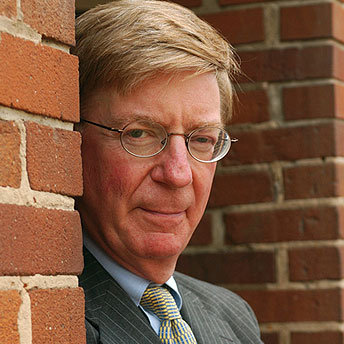Spoilers ahoy.
In my review of The Force Awakens two years ago, the following propositions were asserted:
- Dualistic Fatalism: The plot similarities between TFA and A New Hope were not a defect, but a natural extension of the franchise’s Zoroasterism; good and evil locked in an eternally recurring battle. Some of Maz’s dialogue at least suggested this was intentional.
- Cultural Barometer: As a pagan franchise, Star Wars provides as good a window as any into the state of our increasingly pagan culture.
- Boomer Regrets: Where the point of Darth Vader was that Boomers were afraid their parents were evil, the point of Kylo Ren is that Boomers are afraid their children are evil – and that it’s their fault, for breaking up the family.
- The Family Awakens: TFA was part of a broader cultural movement in which the dominant forces of feminism were/are retrenching their positions to accommodate the family.
In the review of The Last Jedi below, the following propositions are asserted:
- Control-G on All Counts!
This is actually two movies. One movie is called The Trials of Rey, Jedi Knight. The other movie is called Eat Arby’s.
After I saw TLJ the second time, I found myself waiting for my daughter to come out of the bathroom. I was sitting next to one of those big cardboard standup movie promotions. This one had an enormous (larger than life-sized) image of Dwayne Johnson’s face. As I watched, a gaggle of little kids came up and, giggling like maniacs, stuck their fingers into the image of The Rock’s nostrils.
I thought: This is both more intelligent and more entertaining than 50% of The Last Jedi.
There’s not much point reviewing the insulting stupidity of literally everything – plot, dialogue, characterization, continuity – in the Eat Arby’s movie. One point does feel worth dwelling on, however.
A heroic self-sacrificial death for Finn would simultaneously have been a perfect conclusion of his character arc, provided this half of the movie with the earned gravitas it desperately needed, and represented a real risk-taking break with expectations as opposed to a faux one. It would have been immensely powerful. Someone has said it would have been up there with Han going into the carbonite as an iconic moment.
But apparently self-sacrifice is only heroic when feminists with purple hair do it.
The cop-out about how Finn shouldn’t die in battle to save those he loves because that’s not saving what we love, or whatever, instantly reminded me of this line from G.K. Chesterton: “Sham love ends in compromise and common philosophy; but real love has always ended in bloodshed.”
I will also say this. Finn was the only character in TFA whose backstory was really new. And it’s not just any backstory. He is an escaped slave played by a black man. How he’s handled is important for reasons that go beyond Star Wars. There is a greater responsibility to do right by this character. Remember that moment when Maz totally has Finn’s number and is trying to shame him, and Finn leans over the table and says “you don’t know me, you don’t know who I am, what I’ve seen.” Remember that? That moment is there for a reason, people.
As I left the theater after TLJ, I wondered how many black people are bothered that Anglo progressives exploit their ancestors’ suffering to promote ideas and causes that are not only unrelated to, but (as here) often inimical to, black advancement. But that’s none of my business.
So let’s talk about The Trials of Rey, Jedi Knight.
As in TFA, the obvious and very extensive plot recycling from the original trilogy in TLJ is a feature, not a bug. It represents the eternally recurring fate of light and dark. As before, dialogue (Snoke’s this time) suggests the filmmakers know what they’re doing in this regard.
I also don’t think Rey’s surprisingly fast power-up is that big a deal. It’s part of the point of the movie. As Yoda says to Luke, “we are the ones they surpass.” Rey is some kind of prodigy from nowhere whose power will remake everything. Yes, maybe they overdid it, exposing them to some legit “Master the Force in Three Easy Lessons!” gags. But it’s not a huge problem if you realize the full significance of the fact that Rey isn’t just another Skywalker in line for the family lineage.
Where TFA was about the family, TLJ is about the past. We need the wisdom of the past, but the corruption of the past threatens to destroy us.
Luke wants to destroy the past in sorrow, because he fears his own failures. But Kylo Ren also wants to “destroy the past,” and he shows where that path always leads. The attempt to become the self-creating Nietzschean superman only produces monsters. We cannot, in fact, make ourselves. We cannot be anything other than what the past has made us. “I cannot deny my past to which my self is wed/The woven figure cannot undo its thread.” (Louis MacNeice, “Valediction”)
In both movies, feminism is retrenched to permit the real human needs that legacy feminism had denied us. Vice Admiral Purple Hair can’t bear to pass up the opportunity to humiliate a male subordinate, so as a direct result of her poor leadership, thousands are slaughtered. No, I don’t think that’s the lesson the filmmakers intended us to take, but the film does work well if we thus interpret. (As someone has pointed out, humiliating Poe once would have been fine; doing it a second time manifests a desire to humiliate not him, but us, the audience.)
By contrast, Rey comes to Luke needing a teacher. He won’t teach her because the past is unworthy. So what does she do? She steals the Jedi library! She will not be denied the wisdom she needs simply because it comes from the corrupt male-dominated past. Girl power!
Rey acts with such audacity because she is, as I have said, the prodigy who will change everything. It’s not a good idea for just anyone to overturn the tables in the temple, but it’s a good idea to do it if you’re Jesus.
I thought the scene in the dark side cave also made this point. Rey penetrates the essential self-referential emptiness of evil, which nullifies the meaning of things by removing transcendent frames of reference (that, I take it, is the point of the trans-temporal cause-effect chain of Reys, and of seeing herself in the stone at the end) and walks away relatively unscathed. Rey doesn’t struggle with inner demons the way Luke did.
And Yoda confirms Rey’s mandate to overturn the tables in the Jedi temple by burning the temple down. This is the implication of Luke’s first lesson for Rey, the vanity of thinking that the elemental powers of good and evil in the universe depend on our institutions and structures. The Jedi can indeed be burned down, and good will endure.
Yoda’s lesson for Luke, in turn, is that the failures of the old provide the greatest lessons for the new, and thus the old have much to pass on to the young regardless of their failures. When the old is merely destroyed and no more than that, the result is Kylo Ren. The determination of legacy feminism, and the other radical ideologies that rule our culture, to simply burn down the past without taking the books, is the cause of all our Kylo Rens.
But when the old do not merely abandon their posts, when they depart in such a way as to pass on their wisdom to the young, as Luke does on the salt planet (watch the ground under his feet!), the old provide the seed of the new – and, in so doing, they do not actually pass away at all.
They become more powerful than you can possibly imagine.






